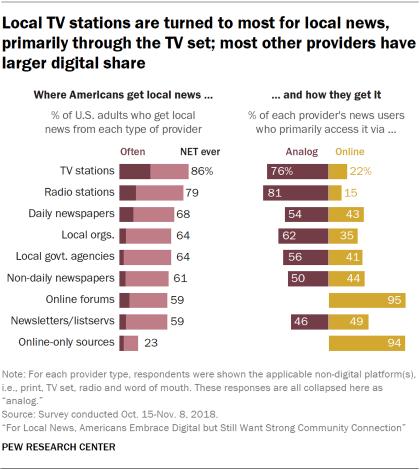Other prizes went to the Associated Press, Los Angeles Times, The Wall Street Journal, ProPublica, St. Louis Post-Dispatch, The Advocate of Baton Rouge, La., and cartooning freelancer Darrin Bell.
The mass shootings in Maryland, Florida and Pennsylvania also accounted for honors in three separate acknowledgements, while two awards were given in the international journalism category for atrocities oversees
The Pulitzer Board gave kudos to two publications that were affected by those horrible shootings in 2018: the student paper, The Eagle Eye, at Marjory Stoneman Douglas High School in Parkland, Fla., and the Capital Gazette in Annapolis, MD.
At the beginning of the announcement ceremony, Pulitzer Administrator Dana Canedy highlighted the work done by students at The Eagle Eye as they covered the Feb. 14 shooting that left 17 students and staff dead.
She later announced that a special citation was being given to the Gazette staff for their bravery in putting out a paper and online coverage of the shooting in its newsroom on June 28 that resulted in the deaths of four staffers.
See the entire list of journalism Pulitzers below:
Journalism
Public Service
For
exposing failings by school and law enforcement officials before and
after the deadly shooting rampage at Marjory Stoneman Douglas High
School.
Breaking News Reporting
For
immersive, compassionate coverage of the massacre at Pittsburgh’s Tree
of Life synagogue that captured the anguish and resilience of a
community thrust into grief.
Investigative Reporting
For
consequential reporting on a University of Southern California
gynecologist accused of violating hundreds of young women for more than a
quarter-century.
Explanatory Reporting
For
an exhaustive 18-month investigation of President Donald Trump’s
finances that debunked his claims of self-made wealth and revealed a
business empire riddled with tax dodges.
Local Reporting
For
a damning portrayal of the state’s discriminatory conviction system,
including a Jim Crow-era law, that enabled Louisiana courts to send
defendants to jail without jury consensus on the accused’s guilt.
National Reporting
For
uncovering President Trump’s secret payoffs to two women during his
campaign who claimed to have had affairs with him, and the web of
supporters who facilitated the transactions, triggering criminal
inquiries and calls for impeachment.
International Reporting
For relentless reporting that exposed the brutal killing campaign behind Philippines President Rodrigo Duterte’s war on drugs.
For
expertly exposing the military units and Buddhist villagers responsible
for the systematic expulsion and murder of Rohingya Muslims from
Myanmar, courageous coverage that landed its reporters in prison.
Feature Writing
For
a series of powerful, intimate narratives that followed Salvadorian
immigrants on New York’s Long Island whose lives were shattered by a
botched federal crackdown on the international criminal gang MS-13.
Commentary
For
bold columns that exposed the malfeasance and injustice of forcing poor
rural Missourians charged with misdemeanor crimes to pay unaffordable
fines or be sent to jail.
Criticism
For
trenchant and searching reviews and essays that joined warm emotion and
careful analysis in examining a broad range of books addressing
government and the American experience.
Editorial Writing
For
editorials written with extraordinary moral clarity that charted the
racial fault lines in the United States at a polarizing moment in the
nation’s history.
Editorial Cartooning
For
beautiful and daring editorial cartoons that took on issues affecting
disenfranchised communities, calling out lies, hypocrisy and fraud in
the political turmoil surrounding the Trump administration.
Breaking News Photography
For
a chilling image that reflected the photographer’s reflexes and
concentration in capturing the moment of impact of a car attack during a
racially charged protest in Charlottesville, Va.
Feature Photography
For
brilliant photo storytelling of the tragic famine in Yemen, shown
through images in which beauty and composure are intertwined with
devastation. (Moved by the jury from Breaking News Photography, where it
was originally entered.)
















